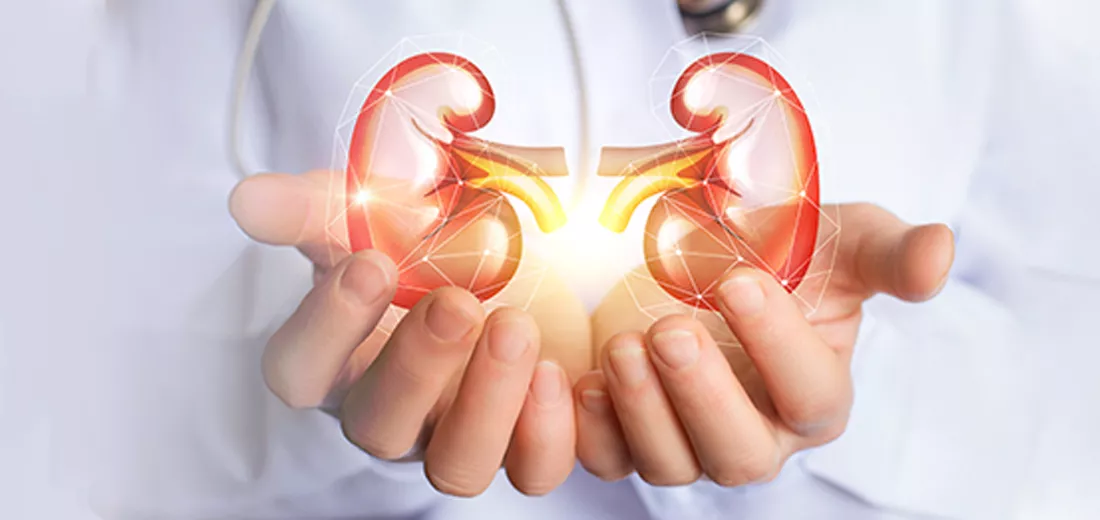As per the WHO statistics, it is estimated that 1 in 5 men and 1 out of 4 women have chronic kidney disease worldwide. Chronic kidney disease (CKD) is a condition where the kidneys are damaged or have no capacity to filter toxins from the body. Every 5 hours, a new patient is subjected to dialysis to remove the toxic materials. If you or your loved one is facing such challenges, visiting a reputed Nephrology hospital in Hebbal Bangalore can ensure timely diagnosis and advanced kidney care.
What is chronic kidney disease (CKD)?
A condition where the kidney loses its normal function over a period of months or years is called chronic kidney disease (CKD). Each kidney has more than a million filters called nephrons, which are responsible for eliminating waste products from the body. If the nephrons are damaged or worn out, they stop functioning. A healthy nephron has the ability to work extra, but if the injury or damage is spread to other nephrons, a number of nephrons will stop working.
At a certain point, the damaged nephrons will fail to filter the blood at an optimal level. When the kidney fails to function normally, it results in kidney failure. If left untreated, it can be life-threatening. Walk into Aster CMI Hospital for more details about kidney health by a highly-qualified nephrologist in Bangalore.
Some unknown facts of kidney disorders:
There’s no signs and symptoms of chronic kidney disease at the early stage.
Chronic kidney disorders are treatable, if treated early.
Blood and urine samples are used to detect kidney disease.
Kidney disorders can progress to kidney failure.
What causes chronic kidney disease?
Diabetes and hypertension (high blood pressure) are the common cause of kidney disease. The less common conditions that lead to CKD are glomerulonephritis (inflammation) or pyelonephritis (infections).
Polycystic disease or prolonged blockage in the urinary system, such as kidney stones or enlarged prostate can result in kidney diseases.
Certain kind of drugs causes chronic kidney disease, such as analgesics (painkillers). Consulting experienced Nephrologists in Hebbal Bangalore can help detect such causes early and manage the condition effectively through the right treatment approach.
Signs and symptoms of chronic kidney disease
Around 90% of the kidney functions stop working before experiencing any kind of symptoms. A majority of people have no signs and symptoms until CKD is at an advanced stage. The general symptoms of chronic kidney disease are:
Fatigue
Loss of appetite
Weakness
Decreased sexual desire
Difficulty in concentrating
Blood in urine
Abdominal pain
Increased thirst
Muscle cramps
If a person is experiencing any of these symptoms he/she needs medical attention. All of the above symptoms might not be directly related to kidney disorder. Contact your healthcare providers if the symptoms get worse.
How is kidney function measured?
The main function of the kidney is to maintain optimal levels of creatinine in the blood. Creatinine is a waste product produced by muscles and excreted by the kidneys. When kidney function is impaired, creatinine accumulates in the blood that results in elevation when a blood sample is tested. This can be used to assess the kidney function.
Kidney function is can also be measured with a GFR (Glomerular Filtration Rate) test. It measures the blood filtration rate by the kidneys and it helps doctors to determine the kidney function.
Chronic kidney disease stages
Kidney disease progresses slowly with no traces of any signs or symptoms. Not all kidney disorders start from stage 1 to stage 5, some can be treatable depending upon the conditions. The end-stage of stage 5 is called End-stage renal disease(ESRD).
If the GFR level (Glomerular filtration rate) is at 90 mL/min then kidneys are healthy
Stage 1:
If the GFR level is 90 mL/min or more, kidney damage with a normal rate of GFR
Stage 2:
If the GFR level is 60 to 89 mL/min, kidney damage and a mild decrease in GFR
Stage 3:
If the GFR level is 30 to 59 mL/min, a moderate decrease in GFR
Stage 4:
If the GFR level is 15 to 29 mL/min, severe decrease in GFR
Stage 5:
If the GFR level is less than 15 mL/min or dependent on dialysis, kidney failure
How is chronic kidney disease treated?
There’s no permanent cure for chronic kidney disease, but treatment can stop the progression of the disorder and avoid the complications.
The main elements to keep the kidneys at a good score is diet and medications. Patients suffering from the end stage of renal diseases need long-term dialysis or kidney transplantation. A proper diet and medications might help to maintain the kidneys if it’s in the early stage of kidney diseases.
If the person has kidney failure, waste products and fluids get accumulate in the body and need dialysis treatment to eliminate the toxins. The dialysis can be done by machine (hemodialysis) or by infusing fluids in the abdomen (peritoneal dialysis).
Robotic kidney transplant in India is a new medical technology implemented by in Bangalore. Contact the best nephrology hospital in Bangalore to learn more about kidney transplants.
How to prevent kidney disorder?
A healthy lifestyle helps to reduce the risk of kidney disease and helps to keep them under control.
Follow these healthy tips to lower your risk factors, such as:
Have a low-salt diet
Exercise for 30 minutes a day
Don’t skip health check-up appointments
Limit intake of alcohol
Avoid usage of tobacco
Maintain a healthy weight
Control blood sugar levels, if you’re diabetic
A sedentary lifestyle affects health and results in various complications. Follow healthy habits to protect your health and avoid all the health-related complications.





